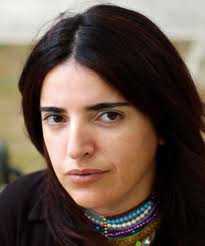 When the Centre for Turkey Studies and Development (CTSD) invited two leading journalists/writers from Turkey over to London to speak at a meeting in the House of Commons this evening on the state of the democratisation process in their country, they could little have realised how febrile the atmosphere would be. But the 28 December attack on the Kurdish village of Reboske in south eastern Turkey (little covered by Western media) by an unmanned Turkish airforce drone, which reportedly killed 35 people, has been a devastating blow for peace efforts aimed at ending decades of fighting and human rights abuses relating to Turkey’s so-called Kurdish problem. The writer and poet Bejan Matur this evening at the meeting went so far as to describe this as Turkey’s 9/11 moment, which can only help to radicalise Kurds. She herself said she had orginally thought of the Kurdish struggle in terms of language and other cultural rights, but now realised that it has to be about equality — and that despite certain positive steps taken by the government of Recep Tayyip Erdogan since 2009, Kurds in Turkey are still not viewed or treated as equal by most Turks and usually they can only ‘succeed’ if everyday life and jobs if they agree to accept their ‘Turkishness’. Some of Bejan Matur’s views were echosed by the liberal Turkish journalist Hasan Cemal, best known for his columns in Milliyet, but he stressed that in his view Kurdish rights can now only be furthered if violent action (notably by the mountain-based PKK, which is viewed by the government in Ankara and some Western governments as a terrorist organisation) is terminated definitively. He said that talking to ordinary people in Kurdish-dominated cities like Diyarbakir, he had found they were tired of conflict and sacrifice. But he wasn’t given an entirely easy ride by the largely Kurdish audience at the House of Commons meeting this evening. I suspect Bejan Matur would similarly have had a less comfortable experience in front of a more nationalistic Turkish audience. As so often in conflict situations, many people have become deeply polarised. Bejan famously went up into the mountains to meet the PKK )incoluding a friend) and wrote a book about that experience, which has been selling well. Hasan Cemal also argued that the PKK have to be part of the solution, but he cautioned people with the example of the peace process in Northern Ireland, where it took nearly a decade after the Good Friday Agreement for a deal to be clinched, and even longer to get a full decommissioning of weapons. So although he had been largely optimistic about apeaceful settlement of the issue since 2009, in recrnt weeks he had become pessimistic about any positive outome in the shhort term.
When the Centre for Turkey Studies and Development (CTSD) invited two leading journalists/writers from Turkey over to London to speak at a meeting in the House of Commons this evening on the state of the democratisation process in their country, they could little have realised how febrile the atmosphere would be. But the 28 December attack on the Kurdish village of Reboske in south eastern Turkey (little covered by Western media) by an unmanned Turkish airforce drone, which reportedly killed 35 people, has been a devastating blow for peace efforts aimed at ending decades of fighting and human rights abuses relating to Turkey’s so-called Kurdish problem. The writer and poet Bejan Matur this evening at the meeting went so far as to describe this as Turkey’s 9/11 moment, which can only help to radicalise Kurds. She herself said she had orginally thought of the Kurdish struggle in terms of language and other cultural rights, but now realised that it has to be about equality — and that despite certain positive steps taken by the government of Recep Tayyip Erdogan since 2009, Kurds in Turkey are still not viewed or treated as equal by most Turks and usually they can only ‘succeed’ if everyday life and jobs if they agree to accept their ‘Turkishness’. Some of Bejan Matur’s views were echosed by the liberal Turkish journalist Hasan Cemal, best known for his columns in Milliyet, but he stressed that in his view Kurdish rights can now only be furthered if violent action (notably by the mountain-based PKK, which is viewed by the government in Ankara and some Western governments as a terrorist organisation) is terminated definitively. He said that talking to ordinary people in Kurdish-dominated cities like Diyarbakir, he had found they were tired of conflict and sacrifice. But he wasn’t given an entirely easy ride by the largely Kurdish audience at the House of Commons meeting this evening. I suspect Bejan Matur would similarly have had a less comfortable experience in front of a more nationalistic Turkish audience. As so often in conflict situations, many people have become deeply polarised. Bejan famously went up into the mountains to meet the PKK )incoluding a friend) and wrote a book about that experience, which has been selling well. Hasan Cemal also argued that the PKK have to be part of the solution, but he cautioned people with the example of the peace process in Northern Ireland, where it took nearly a decade after the Good Friday Agreement for a deal to be clinched, and even longer to get a full decommissioning of weapons. So although he had been largely optimistic about apeaceful settlement of the issue since 2009, in recrnt weeks he had become pessimistic about any positive outome in the shhort term.
via Democratisation and Political Change in Turkey « Jonathan Fryer.